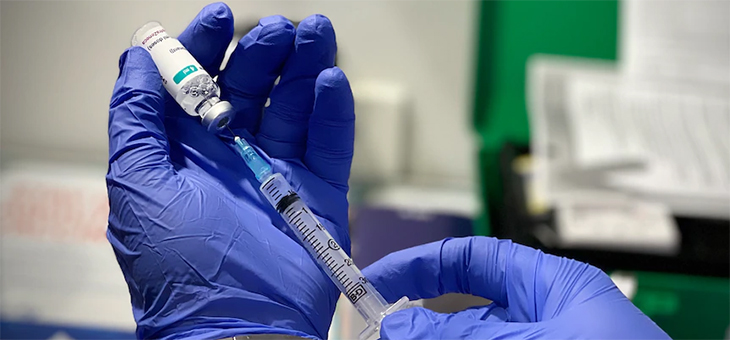The federal government has asked the nation’s medical and vaccine regulators to urgently look into findings from the European Medicines Agency of a possible link between AstraZeneca’s COVID vaccine and rare blood-clotting issues.
In the wake of the EMA’s findings, the United Kingdom’s vaccine advisory board has said all people under 30 will now be offered alternative vaccines like Pfizer and Moderna.
“The government has asked [the Australian Technical Advisory Group on Immunisation] and the [Therapeutic Goods Administration] to immediately consider and advise on the latest vaccination findings out of Europe and the UK,” a spokesperson said.
“Regulators have already been working with their international counterparts to consider the latest international evidence.”
Chief Medical Officer Paul Kelly said ATAGI and the TGA met yesterday and would meet again today, with the hope that he would be able to provide advice to National Cabinet when it meets tomorrow.
“We certainly place safety above all else, and as we’ve done throughout the pandemic, the government will be guided by that health advice,” he said.
He acknowledged that the findings could affect confidence in the vaccine but stressed that while the health experts took the issue seriously, the clots were “extremely rare”.
“Like with any treatment, vaccine, medicine we have to look at the risk and benefit and we do know that the risk of vaccination against this very serious disease of COVID is a really important component of our control,” Professor Kelly said.
“The AstraZeneca vaccine is extremely effective and very safe for most people.”
In its statement, the UK government said it estimated the vaccine had saved the lives of around 6,000 people this year alone.
The Chief Medical Officer said the nation’s health experts would look closely at the data from overseas.
“They’re finding about 1 in 200,000 or 5 per million people getting this issue and about 1 in 4 of those are dying,” he said.
“So it’s a serious effect but extremely rare.
“At the moment there’s so few cases that it’s so hard to make conclusions.”
Professor Kelly said ATAGI and the TGA would also consider the UK’s move to offer people under 30 a different vaccine.
“There seems to be a trend in younger people and, at least in the European data, in women being more common,” he said.
‘Best people in the world’ looking at findings
The Prime Minister said he was hoping to receive advice from ATAGI and the TGA later this evening.
Scott Morrison added the information would also go to state and territory health ministers, who would then be able to brief premiers and chief ministers before tomorrow’s National Cabinet meeting.
“We have got the best people in the world looking at these issues to give us the medical expert advice,” he said.
“We’ll be taking that [expert medical advice] today and the decisions will follow that.”
Mr Morrison said he would not pre-empt the advice or any suggestions to pause the rollout or offer people under 30 different vaccines.
Australia has ordered 3.8 million AstraZeneca doses and plans to produce 50 million locally, with most people to receive this vaccine over ones from other companies.
Australia has secured 20 million doses of Pfizer’s jab, or enough for 10 million people, which are being shipped in batches from Europe weekly.
 © 2020 Australian Broadcasting Corporation. All rights reserved.
© 2020 Australian Broadcasting Corporation. All rights reserved.
ABC Content Disclaimer

